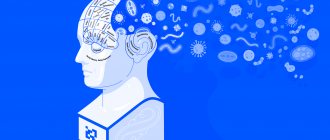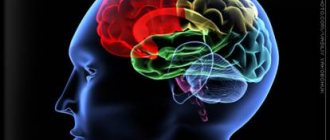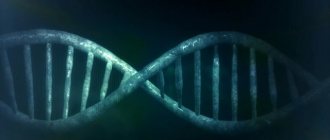General information
Doctors have always tried to determine the reasons why women feel unwell and irritable in the days immediately before their period .
In ancient times, this phenomenon was associated with various factors - the phases of the moon, the woman’s health, and the characteristics of the area where she lived. However, the state before menstruation was a mystery to the Aesculapians. Only in the twentieth century were doctors able to understand to some extent what was happening to the ladies. Speaking about PMS - what it is, you should know how PMS stands for - premenstrual syndrome , which means - a manifestation characteristic of women in the days before menstruation. PMS is a set of symptoms that appear in women and girls a few days before the onset of menstruation.
Scientists are still researching what causes such manifestations and what this syndrome means. Those who are interested in how PMS is translated should learn in more detail what manifestations are characteristic of this condition. Each decoding of what PMS is in girls contains a description of all the characteristic symptoms and manifestations.
After all, PMS in women is a whole complex of symptoms, both physical and mental—scientists have counted about 150 of them. Approximately 75% of women experience premenstrual syndrome to varying degrees.
As a rule, PMS in girls begins to appear approximately 2-10 days before the day when signs of menstruation appear. After menstruation ends, menstrual syndrome also completely disappears.
Alternative opinion
Wikipedia talks about an alternative opinion regarding PMS as a social phenomenon. Apologists of the generally accepted opinion believe that PMS and PMDD are in no way related to each other. The difference between them is that premenstrual syndrome is a common hypochondria, and premenstrual dysphoric disorder is the result of brain chemical processes. Peter Goetsche, a well-known expert in the field of clinical trial analysis, argues that PMDD is not a disease, and this disorder cannot be identified with depression.
Why does PMS develop?
So far, all the studies conducted have not made it possible to determine why premenstrual syndrome manifests itself? There are many theories that explain why this condition develops.
- The so-called “water intoxication” is a disrupted water-salt metabolism.
- Allergic nature - high sensitivity of the body to endogenous progesterone .
- Psychosomatic – the development of physiological symptoms due to the influence of mental factors.
The most complete and broadest theory today is the hormonal theory, according to which PMS is explained by strong hormonal fluctuations in the second phase of the cycle. After all, for the female body to function correctly, normal hormonal balance is important:
- estrogens can improve well-being, both physical and mental, activate mental activity, and increase vitality;
- progesterone provides a sedative effect, which can lead to a depressive state in the second phase;
- Androgens affect libido, increase performance and energy.
In the second phase of the cycle, a woman’s hormonal background changes. Consequently, the hormonal theory suggests that the body reacts inadequately to such a “storm”. Interestingly, premenstrual tension syndrome is inherited.
Since endocrine instability , this leads to the manifestation of somatic and psycho-vegetative disorders. The main reason for this is the fluctuation of sex hormones during the monthly cycle and the reaction of the limbic parts of the brain to this.
- When the level of estrogen and first increases, and then the level of progesterone , swelling, tenderness of the mammary glands, dysfunction of the heart and blood vessels, pressure surges, irritability and aggression in women are noted.
- With increased secretion of prolactin, fluid is also retained in the body.
- When the content of prostaglandins , vegetative-vascular disorders and digestive disorders are observed - diarrhea, constipation migraine- like headaches .
Thus, modern doctors identify the following factors that determine the development of PMS:
- serotonin levels , which leads to the manifestation of mental symptoms of premenstrual syndrome: when this hormone decreases, sadness, depression , and melancholy are noted.
- A lack of vitamin B6 leads to fluid retention, increased breast sensitivity, and mood changes.
- A lack of magnesium leads to the development of symptoms such as dizziness , tachycardia , headache, and the desire to eat sweets.
- Smoking – women who smoke suffer from PMS twice as often.
- Overweight - those with a body mass index greater than 30 are much more likely to experience symptoms of this syndrome.
- Genetics – the tendency to PMS can be inherited.
- Difficult childbirth, abortion, gynecological operations.
- Stress.
Prevention
To prevent the development of premenstrual syndrome, you should follow simple but very effective recommendations:
- adhere to dietary nutrition. The diet should be balanced, it should definitely include foods rich in vitamins, potassium, magnesium and calcium. You can consume these elements as part of vitamin complexes;
- control your body weight, avoid overeating and strict diets;
- do not subject your body to heavy physical activity and do not succumb to psycho-emotional disorders;
- lead a healthy lifestyle, give up bad habits and regularly exercise;
- regularly have protected sex, preferably with a regular partner;
- go for preventive examinations to a gynecologist at least once every six months;
- if you are prescribed hormonal therapy, take all the medications included in it on time, and also inform the specialist about any changes in your health so that he can change or discontinue the drug in time without harm to your health;
- If PMS occurs, never treat it yourself; discuss all treatment methods with your doctor.
The main symptoms of PMS in women
When talking about what PMS symptoms are, how many days before menstruation do they appear in girls and women, we should take into account the individual characteristics of each organism. Doctors divide the main signs of PMS before menstruation into several different groups. The following symptoms of premenstrual syndrome are distinguished (by group):
- Neuropsychic : depression, aggression, irritability and tearfulness.
- Metabolic-endocrine : chills, swelling due to impaired water-salt metabolism, elevated temperature, discomfort in the mammary glands, flatulence , bloating, shortness , deterioration of vision and memory.
- Vegetative-vascular : headache, pressure changes, nausea, diarrhea , vomiting, dizziness , tachycardia, heart pain .
Speaking about what symptoms women experience before menstruation, it should be taken into account that they can be conditionally divided into several forms. However, as a rule, they are combined. So, if pronounced psycho-vegetative disorders are observed, the pain threshold decreases, and the woman perceives pain very acutely - a week or a few days before menstruation.
What signs of menstruation can be observed in a week or in a few days?
| Neuropsychic form | Disturbances in the emotional and nervous spheres appear:
|
| Crisis form |
|
| Atypical manifestations |
|
| Edema form |
|
| Cephalgic form | Most manifest vegetative-vascular and neurological symptoms:
Approximately 75% of women experience increased vascular pattern, hyperostosis . With this form, as a rule, the family history includes hypertension, diseases of the digestive system, heart and vascular diseases. |
Wikipedia and other sources indicate that each woman experiences PMS differently, and the symptoms may vary.
Scientists, having conducted a series of studies, determined the frequency of symptoms of premenstrual syndrome:
| Symptom | Occurrence frequency in percentage |
| Irritability | 94 |
| Unpleasant sensations and pain in the mammary glands | 87 |
| Bloating | 75 |
| Tearfulness | 69 |
| Depression, headaches, sensitivity to smells | 56 |
| Sweating, weakness, swelling | 50 |
| Aggression, palpitations | 44 |
| Lower abdominal pain, dizziness, nausea | 37 |
| Diarrhea, high blood pressure, weight gain | 19 |
| Vomit | 12 |
| Constipation | 6 |
| Lower back pain | 3 |
In addition, PMS can significantly aggravate the course of other diseases:
- epilepsy;
- anemia;
- thyroid diseases;
- migraine;
- bronchial asthma;
- chronic fatigue syndrome;
- allergies;
- irritable bowel syndrome;
- inflammatory diseases of the female genital area.
What conditions and diseases can masquerade as PMS?
To know how many days before menstruation begins, every woman needs to keep a calendar or a special notebook and write down the start date of menstruation, how long menstruation lasts, as well as the day of ovulation (to do this, just measure your basal temperature). It is also worth noting the manifestation of symptoms before menstruation and how you feel during ovulation.
If a woman keeps such records over several cycles, this helps her determine how often signs of PMS appear. Also, the diary will help determine whether there is a delay in menstruation, etc.
To establish a diagnosis of PMS, the doctor determines the presence of at least 4 signs listed below:
- drowsiness , insomnia ;
- deterioration of attention and memory;
- increased appetite, decreased appetite;
- severe fatigue, weakness;
- chest pain;
- headache;
- swelling;
- pain in joints or muscles;
- exacerbation of chronic diseases.
This condition can also be diagnosed if at least one of the following signs is observed:
- conflict, tearfulness, nervousness and irritability, sudden mood swings in women;
- groundless anxiety, fear, tension;
- feeling of melancholy without reason, depression;
- depression;
- aggressiveness.
To determine the severity of PMS, it is important to take into account the number of manifestations, their severity and duration:
- Mild form - manifests itself from 1 to 4 symptoms, if these are 1-2 signs, then they are significantly pronounced.
- Severe form - manifests itself from 2 to 12 signs, if these are 2-5 symptoms, then they are significantly pronounced. Sometimes they can lead to a woman becoming unable to work the day or several days before her period.
The cyclical nature of manifestations is the main feature that distinguishes premenstrual syndrome from other diseases. That is, this condition is premenstrual syndrome when it begins before menstruation (from 2 to 10 days) and completely disappears after menstruation. But if psychovegetative symptoms disappear, then physical sensations sometimes turn into painful periods or migraines in the first days of the cycle.
If a woman’s sensations in the first phase of the cycle are relatively good, then this is precisely PMS, and not an exacerbation of chronic diseases - depression, neurosis, fibrocystic mastopathy .
If pain is observed only immediately before menstruation and during menstruation, and is combined with bleeding in the middle of the cycle, this indicates that, most likely, a gynecological disease is developing in the body - endometritis , endometriosis , etc.
To establish the form of PMS, hormones are examined: estradiol , prolactin , progesterone .
Additional research methods may also be prescribed, depending on which complaints predominate:
- If you are concerned about very severe headaches, tinnitus , dizziness, fainting, or blurred vision, it is necessary to perform a CT or MRI to exclude organic diseases of the brain.
- If neuropsychiatric symptoms predominate, an EEG is performed to exclude epileptic syndrome.
- If swelling is a concern, the amount of urine per day changes, tests are performed to diagnose the kidneys.
- In case of significant breast engorgement, an ultrasound of the mammary glands and mammography .
Women who suffer from PMS are examined not only by a gynecologist, but also by other specialists: neurologists, psychiatrists, nephrologists, endocrinologists, cardiologists, and therapists.
When to see a doctor
For some women, premenstrual syndrome becomes a serious problem that prevents them from living a normal life. For others - the possibility of using a shield called PMS in their affective breakdowns in the hope that they can get away with everything. If the characteristic symptoms appear constantly and are cyclical, then you probably suffer from PMDD - the name of this syndrome can be deciphered as premenstrual dysphoric disorder.
In this case, immediately contact both a gynecologist and a psychotherapist. Especially if in this state you are having thoughts of suicide.
In cases associated with breast heaviness, the appearance of nodes and lumps, do a mammogram. Find out on what day of your cycle you should have a mammogram in the article at the link.
Important! With premenstrual syndrome, women are examined by a gynecologist, neurologist, psychiatrist, nephrologist, cardiologist, and therapist.
How to figure it out - PMS or pregnancy?
Since some symptoms during pregnancy are very similar to signs of PMS, it is important to take into account the differences that can distinguish between these conditions.
After conception has occurred, the hormone progesterone . As a result, a woman may confuse pregnancy with PMS when the following symptoms begin to appear: breast tenderness and swelling, vomiting, nausea, mood swings, lower back pain, irritability.
Often, when you go to one or another thematic forum, you can see women’s arguments about how to distinguish PMS from pregnancy before a delay. Of course, if your periods started on time, then the issue goes away by itself. However, even pregnant women sometimes experience discharge during the day. When should your period be? There are differences between discharge before menstruation and during pregnancy - in pregnant women it is usually more scanty. But still, in order to verify the presence or absence of pregnancy, it is worth doing a test or conducting tests at the medical center. institution.
Below is a comparison of the most common symptoms during pregnancy and PMS.
| Symptom | During pregnancy | For premenstrual syndrome |
| Chest pain | Appears throughout pregnancy | Disappears with the onset of menstruation |
| Appetite | Taste preferences change, the sense of smell becomes more acute, and familiar smells become irritating. | You may crave sweets, salty foods, there is sensitivity to smells, and there may be an increase in appetite |
| Backache | Worrying in the last trimester | Possible lower back pain |
| Fatigue | It appears about a month after conception. | Possible both after ovulation and a few days before menstruation |
| Pain in the lower abdomen | Brief, mild pain | Manifests individually |
| Emotional condition | Mood changes often | Irritability and tearfulness appear |
| Frequent urination | May be | No |
| Toxicosis | Begins to develop approximately 4-5 weeks after conception | There may be nausea and vomiting |
Since the symptoms for these conditions are actually similar, and in some cases it is even possible to become pregnant during your period (at least that is the impression a woman gets if discharge appears), it is important to act correctly.
It is best to wait until your period begins. If a woman notes that she is already experiencing a delay, it is imperative to conduct a pregnancy test, which reliably determines pregnancy after a delay. Those who want to immediately verify whether conception has occurred can take a blood test for hCG (pregnancy hormone). Such a test accurately determines pregnancy already on the tenth day after conception.
The most appropriate thing to do in such a situation is to visit a gynecologist who will help you figure out what a woman actually has - PMS or pregnancy through an examination and an ultrasound. Sometimes the question also arises of how to distinguish pregnancy from menopause - in this case, you also need to consult a doctor or do a test.
When should you contact a specialist?
If pain, irritability, and increased tearfulness in women, the causes of which are associated with PMS, significantly reduce the quality of life and are very pronounced, you should consult a doctor and carry out the treatment prescribed by him. The doctor can also give effective recommendations on how to alleviate certain unpleasant symptoms.
How is PMS treated?
As a rule, with such manifestations, symptomatic therapy is prescribed. How to treat PMS, and whether it is worth prescribing any drugs for treatment, the specialist determines, taking into account the form, symptoms, and course of premenstrual syndrome. The following treatment methods may be prescribed:
- For mood swings, depression, and irritability, psychotherapy sessions, relaxation techniques, and sedatives are prescribed.
- If you are bothered by abdominal pain, lower back pain, or headaches, it is recommended to take non-steroidal anti-inflammatory drugs to relieve pain ( Nimesulide , Ibuprofen , Ketanov , etc.).
- Drugs are also prescribed for the treatment of premenstrual syndrome - diuretics to remove excess fluid and eliminate swelling.
- Hormonal treatment is prescribed if there is insufficiency in the second phase of the cycle, after conducting functional diagnostic tests, guided by the results of the changes that have been identified. Progestogens are prescribed - medroxyprogesterone acetate , Duphaston , they should be taken from the 16th to 25th day of the menstrual cycle.
- Tranquilizers and antidepressants are prescribed to women who develop numerous neuropsychiatric symptoms before menstruation: aggressiveness, nervousness, panic attacks, insomnia, etc. In such cases, Rudotel , Amitriptyline , Tazepam , Zoloft , Sertraline , Prozac , Sonapax . The drugs should be taken in the second phase of the cycle, two days after the onset of symptoms.
- Parlodel may be prescribed in the second phase of the monthly cycle. If prolactin is elevated, then Parlodel must be taken continuously.
- If a woman develops edematous or cephalgic forms, antiprostaglandin medications ( Naprosyn , Indomethacin ) are prescribed in the second phase of the cycle.
- Since PMS may cause an increase in serotonin and histamine, a specialist may prescribe treatment with second-generation antihistamines. You need to take into account how many days the symptoms begin to appear, and start taking pills 2 days before the expected development of these symptoms and continue taking them until the second day of your period.
- To activate blood circulation, Nootropil , Grandaxin , Aminolon for about 3 weeks.
- In case of development of cephalgic, crisis and neuropsychic forms, drugs are prescribed that normalize neurotransmitter metabolism in the central nervous system. For 3 to 6 months you need to take Difenin , Peritol .
- The doctor may also prescribe homeopathic remedies Mastodinon , Remens , as well as vitamin and mineral complexes - for example, vitamins for depression for women.
How to relieve the condition yourself?
If a woman is worried about PMS (sometimes mistakenly called “postmenstrual syndrome”), then she should use some recommendations to alleviate the condition.
It is recommended to take non-steroidal anti-inflammatory drugs
Have a good rest
You need to sleep as much time as your body needs for proper rest. As a rule, this is 8-10 hours. Many women who write on any thematic forum note that it was the normalization of sleep that made it possible to reduce the severity of unpleasant symptoms. With a lack of sleep, anxiety, irritability, aggressiveness can develop, and immunity . For those who suffer from insomnia, taking short evening walks can help.
Aromatherapy
Provided that the woman does not suffer from allergies, you can practice aromatherapy by selecting a special composition of aromatic oils. It is recommended to use lavender, basil, sage, geranium, rose, juniper, and bergamot oils. It is worth starting to take baths with aromatic oils two weeks before menstruation.
Physical exercise
Any reasonable exercise has a positive effect on the body - running, dancing, yoga, bodyflex, etc. If you train fully and regularly, the content of endorphins . And this allows you to overcome depression and insomnia, and reduce the severity of physical symptoms.
Vitamins and minerals
To reduce the severity of symptoms, two weeks before menstruation you need to take magnesium and vitamin B6 . is also recommended to take vitamins E and A. This will help reduce the severity of a number of symptoms: palpitations, insomnia, anxiety, fatigue, irritability.
Nutrition
It is important to include as many vegetables and fruits as possible in your diet, as well as foods containing calcium and fiber. It is worth reducing the amount of coffee, cola, and chocolate consumed, as caffeine provokes anxiety and mood swings. It is important to reduce the amount of fat in your diet.
It is also not recommended to eat beef, which may contain artificial estrogens. You should drink herbal teas, lemon and carrot juices. It is better to exclude or limit alcohol, since under its influence reserves of minerals and vitamins are depleted, and the liver utilizes hormones worse.
Women often wonder why they crave salty foods before menstruation. The fact is that fluctuations in appetite are normal during PMS, and sometimes you just need to “satisfy the demands” of the body in order to feel better.
Relaxation
You need to try to avoid stressful situations, not overwork and think positively. To do this, it is recommended to practice yoga and meditation.
Regular sex
Sex also has a beneficial effect on health - it helps you sleep better, overcome stress, cope with bad emotions, strengthen your immune system and increase endorphins. In addition, in the period before menstruation, a woman’s libido often increases, which contributes to an active sex life.
Medicinal herbs
With the help of herbal teas, you can significantly relieve PMS. The main thing is to choose the right herbs. Tea can be made from St. John's wort, primrose, and other herbs that your doctor recommends.
Who is at risk
If you have your period, it means you may have PMS. But the biggest risk is What Is PMS? women 20–40 years old who:
- gave birth;
- are depressed (and may not know it);
- have suffered from depression, including postpartum depression, or suffer from bipolar disorder;
- have relatives with depression;
- are subject to frequent stress;
- smoke;
- abuse alcohol, salt, sugar and red meat;
- sleep little;
- neglect physical activity.








